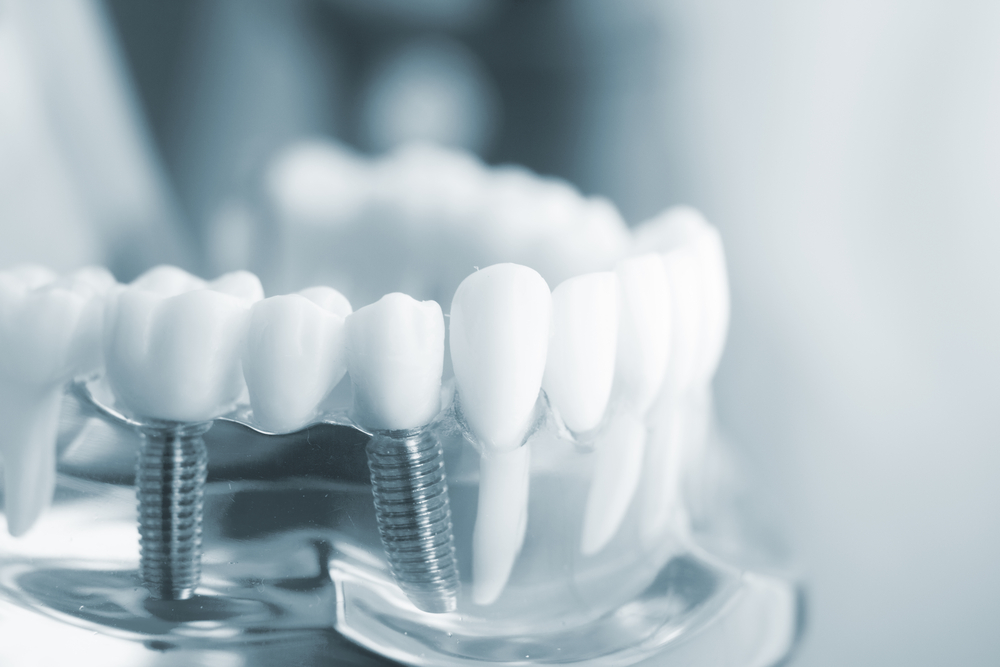There are a variety of reasons for missing teeth. Birth or congenital defects, an injury, tooth decay, failure of a root canal or gum disease are the the most common. Here is some dental implants information to help you decide if they are something you might be interested in. This procedure is the total replacement of missing teeth with artificial replacements. They can also be used to stop or prevent the deterioration of the jaw bone. The procedure is a form of prosthetic and, at the same time, is also is a type of cosmetic dentistry.
Unlike bridges, this procedure actual embeds an artificial root into the jaw bone. This lends a high degree of strength and durability to the prosthetic teeth. This fact makes this procedure the most functionally effective among all treatments. This is the closet thing to your original teeth. You can eat and chew whatever you want. You have none of the problems that occur with a bridge.
The process is started with an initial consultation where x-rays are taken which will allow the dentist to evaluate the structure and strength of your jaw bone. There will be many measurements to calculate the exact location of it. Your dentist will interview to find out about your oral hygiene habits. This procedure will require a commitment to take good care of your teeth after the procedure.
The actual procedure works like this. A hole is carefully drilled into the jaw bone. A titanium screw is inserted into the hole. Gum tissue is covered over the hole and a second protective screw is placed over the hole. It will take up to six months for this to heal completely.
After the screw has fused to bone and the healing is totally complete the gum will be removed. An abutment is attached that the crown is attached to. First a temporary crown will be fitted. The gum over time will naturally grow around the crown. When it is ready the temporary crown is replaced with a permanent crown.
These artificial prosthetic teeth look identical to real natural teeth. The look so realistic in large part due to the anchoring and fusing to the bone just like a root. As you can see, the finish results are completed over several sessions.
There is only minimal pain and swelling after the procedure. Your dentist can prescribe pain medication to control your pain. You probably will only be able to eat soft foods for a few days after the operation.
It is extremely important to practice good personal hygiene after the operation. With regular brushing flossing and visits to your dentist they can last for many years. They can last up to forty years without any problems. However, it is necessary to maintain good care to your teeth or else dental implants can fail. This solution to the problems caused by missing teeth is becoming more widely used. More health insurance policies are covering this procedure which at first was considered experimental. Check your individual policy to see if it will pay for all or part of it.






